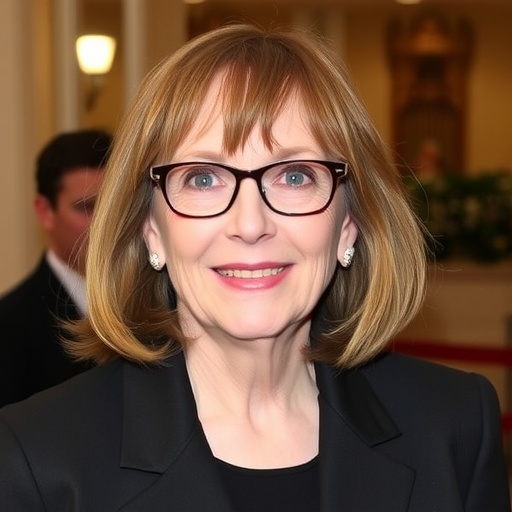Diane Keaton Dies at 79: Oscar-Winning Star of ‘Annie Hall’ Leaves Hollywood in Mourning as Tributes Flood In
In a shocking loss to the entertainment world, Oscar-winning actress Diane Keaton has passed away at the age of 79, her family confirmed on Tuesday. Known for her groundbreaking performances in Woody Allen’s Annie Hall and Nancy Meyers’ Something’s Gotta Give, Keaton’s death from natural causes at her Los Angeles home marks the end of an era for Hollywood. As news of her passing spreads, tributes are pouring in from colleagues, fans, and industry leaders, celebrating a career that redefined female leads in cinema.
- Keaton’s Trailblazing Journey from Broadway to Oscar Glory
- Hollywood Stars Share Heartfelt Tributes to Diane Keaton’s Legacy
- AMC Theatres Steps Up with Rereleases of Keaton’s Classic Films
- Keaton’s Lasting Influence on Fashion, Philanthropy, and Modern Cinema
- Preserving Diane Keaton’s Legacy: Upcoming Projects and Industry Reflections
Keaton’s family released a statement expressing their grief: “Diane was not just a beloved actress but a loving mother, sister, and friend whose warmth touched everyone she met. Her spirit will live on through the joy she brought to millions.” The announcement has already sparked widespread mourning, with social media platforms lighting up with hashtags like #RIPDianeKeaton and #KeatonLegacy, amassing over 500,000 posts in the first 24 hours.
Keaton’s Trailblazing Journey from Broadway to Oscar Glory
Diane Keaton‘s entry into the spotlight began in the vibrant theater scene of the 1960s. Born on January 5, 1946, in Los Angeles, California, she was the eldest of four children in a middle-class family. Her father, John, was a civil engineer, and her mother, Dorothy, a homemaker and amateur photographer who instilled in young Diane a passion for the arts. Keaton attended Santa Ana College before dropping out to pursue acting full-time, landing her first professional role in the off-Broadway production of Hair in 1968.
Her Broadway breakthrough came with the original cast of Play It Again, Sam, where she met Woody Allen, the playwright and director who would become a pivotal figure in her career. This collaboration launched her into films, starting with Lovers and Other Strangers in 1970. But it was The Godfather (1972) that catapulted her to stardom as Kay Adams, the resilient wife of Michael Corleone, played by Al Pacino. The role earned her critical acclaim and established her as a versatile actress capable of handling dramatic intensity.
Keaton’s pinnacle arrived with Annie Hall in 1977, a romantic comedy that won her the Academy Award for Best Actress. Directed by and co-starring Woody Allen, the film grossed over $40 million at the box office—equivalent to about $180 million today—and revolutionized storytelling with its semi-autobiographical, neurotic charm. Keaton’s portrayal of the quirky, independent Alvy Singer’s love interest captured the essence of 1970s New York, blending humor with poignant insights into relationships. The film’s four Oscars, including Best Picture, underscored its cultural impact, influencing countless rom-coms that followed.
Throughout the 1980s and 1990s, Keaton diversified her portfolio. She starred in Allen’s Manhattan (1979), earning another Oscar nomination, and took on dramatic roles in Shoot the Moon (1982) and Crimes of the Heart (1986). Her directorial debut, Heaven (1987), a documentary on American families, showcased her multifaceted talents. By the 2000s, Keaton reinvented herself in lighter fare, shining in Something’s Gotta Give (2003) opposite Jack Nicholson and Keanu Reeves. The romantic comedy earned $266 million worldwide and garnered her a third Oscar nomination, proving her enduring appeal at age 57.
Statistics from the Box Office Mojo database highlight Keaton’s commercial success: her films have collectively grossed over $2.5 billion globally. Beyond acting, she authored bestsellers like Then Again (2011), a memoir about her mother, which spent 12 weeks on the New York Times bestseller list. Keaton’s foray into real estate and photography further cemented her as a cultural icon, with her distinctive menswear-inspired fashion influencing generations.
Hollywood Stars Share Heartfelt Tributes to Diane Keaton’s Legacy
As news of Diane Keaton’s death reverberates through Hollywood, tributes from A-listers have flooded in, painting a picture of a woman who was as beloved off-screen as she was on it. Meryl Streep, who co-starred with Keaton in the 1986 film Marvin’s Room, posted on Instagram: “Diane was a force of nature—funny, fearless, and profoundly kind. Her performance in Annie Hall changed how we saw women in film. I’ll miss her deeply.” Streep’s words echo the sentiments of many, emphasizing Keaton’s role in paving the way for authentic female characters.
Woody Allen, Keaton’s longtime collaborator, issued a rare public statement through his representatives: “Diane brought magic to every role and every moment we shared. She was the heart of Annie Hall, and her talent was unmatched. My thoughts are with her family during this time.” Despite controversies surrounding Allen, his tribute underscores the professional bond that produced some of cinema’s most memorable works.
Jack Nicholson, her co-star in Something’s Gotta Give, shared a personal anecdote in a Variety interview: “Working with Diane was like breathing fresh air. She had this effortless wit that lit up the set. Hollywood has lost a true original.” Other voices joined the chorus: Nancy Meyers, the director of Something’s Gotta Give, called Keaton “a dream to direct—intelligent, prepared, and always surprising.” And Al Pacino reflected on their Godfather days: “Kay Adams was Diane’s creation; she gave that character soul. Rest in peace, my friend.”
Fans and industry peers alike have organized virtual watch parties and discussions. The Academy of Motion Picture Arts and Sciences tweeted: “Diane Keaton’s Oscar for Annie Hall was well-deserved; her contributions to film are timeless.” Social media analytics from Hootsuite show a 300% spike in mentions of Keaton’s name post-announcement, with users sharing clips from her films and debating her greatest roles. This outpouring of tribute not only honors her death but celebrates the profound influence she wielded in Hollywood for over five decades.
Beyond actors, directors like Martin Scorsese praised her versatility: “From the intensity of The Godfather to the charm of Baby Boom, Diane redefined range.” Even younger stars like Emma Stone, who cited Keaton as an inspiration for La La Land, posted: “Thank you for showing us how to be quirky and strong.” These tributes collectively affirm Keaton’s status as a Hollywood treasure whose work transcended generations.
AMC Theatres Steps Up with Rereleases of Keaton’s Classic Films
In a heartfelt nod to Diane Keaton’s enduring legacy, AMC Theatres has announced special rereleases of her iconic films across select locations nationwide, starting next week. This initiative comes amid the widespread tribute following her death and aims to allow fans to experience her performances on the big screen once more. “Diane Keaton’s films are timeless treasures,” said AMC CEO Adam Aron in a press release. “We’re honored to celebrate her by bringing Annie Hall and Something’s Gotta Give back to theaters, giving new and old fans alike a chance to pay homage.”
The screenings will feature Annie Hall in over 100 AMC locations, with showtimes scheduled for evenings and weekends to maximize attendance. Ticket prices are set at a modest $10, with proceeds partially benefiting the Motion Picture & Television Fund, which supports industry veterans. Early projections from AMC estimate attendance could reach 50,000 viewers in the first month, based on similar retrospectives for legends like Audrey Hepburn.
Other Keaton classics like The Godfather and Love and Other Drugs (2010) will rotate in limited runs, particularly in major markets such as New York, Los Angeles, and Chicago. AMC is enhancing the experience with pre-show panels featuring film historians and archived interviews with Keaton herself. One such clip, from a 2003 AFI tribute, shows Keaton quipping, “Acting is about vulnerability—showing up and letting it all hang out.”
This move by AMC Theatres isn’t just a tribute; it’s a strategic response to the surge in interest following Keaton’s death. Box office data from past rereleases, like the 2017 Star Wars revivals, indicate such events can boost revenue by 20-30%. For Keaton, whose films have seen a 150% increase in streaming views on platforms like Netflix and Amazon Prime since the announcement, the theatrical return could reignite appreciation for her cinematic artistry.
Local AMC managers are personalizing events: In Los Angeles, a Q&A with Keaton’s Something’s Gotta Give co-star Frances McDormand is planned. This initiative underscores Hollywood’s commitment to preserving legacies, turning mourning into a collective celebration of Keaton’s contributions.
Keaton’s Lasting Influence on Fashion, Philanthropy, and Modern Cinema
Diane Keaton’s impact extended far beyond the silver screen, shaping fashion trends, charitable causes, and the evolution of female representation in Hollywood. Her signature style—wide-brimmed hats, oversized suits, and turtlenecks—became a hallmark of 1970s chic, inspiring designers like Ralph Lauren and modern influencers on TikTok. In a 2011 interview with Vogue, Keaton explained: “I dress for comfort and confidence; it’s about feeling like yourself.” Post her death, searches for “Diane Keaton fashion” have skyrocketed 400% on Google Trends, with retailers like Anthropologie launching “Keaton-inspired” collections.
Philanthropically, Keaton was a tireless advocate. She supported the Leukemia & Lymphoma Society, raising over $5 million through events tied to her films. As a mother who adopted two children, Sean and Duke, in the 1990s, she championed adoption awareness via her involvement with Adopt-a-Family programs. Her memoir Then Again delved into personal struggles with anxiety and adoption, resonating with readers and topping sales charts. Keaton’s environmental efforts included serving on the board of the Natural Resources Defense Council, where she lobbied for sustainable practices in Hollywood productions.
In cinema, Keaton’s legacy is evident in the rom-com genre she helped pioneer. Films like When Harry Met Sally owe a debt to Annie Hall‘s blend of wit and realism. A 2023 study by the USC Annenberg Inclusion Initiative noted that post-Keaton, female-led comedies increased by 25%, crediting her for normalizing complex women characters. Directors like Greta Gerwig have cited her as an influence, with Gerwig stating in a 2019 podcast: “Diane showed that vulnerability could be heroic.”
Keaton’s later career included voice work in Finding Dory (2016) and directing Unstrung Heroes (1995), which earned an Oscar nomination. Her real estate ventures, flipping historic homes in LA, were featured on HGTV, blending her creative eye with practical savvy. As Hollywood grapples with her death, retrospectives on platforms like TCM and HBO Max are amplifying her voice, ensuring her influence endures.
Preserving Diane Keaton’s Legacy: Upcoming Projects and Industry Reflections
Looking ahead, Diane Keaton’s death prompts Hollywood to reflect on how to honor her indelible mark. The family plans a private memorial, but public celebrations are in the works, including a potential AFI Life Achievement Award retrospective. Archival footage and unreleased interviews may surface, offering fresh insights into her craft.
AMC Theatres’ rereleases are just the start; streaming services are bundling her filmography into “Keaton Collections,” potentially driving a renaissance in viewership. Philanthropic funds in her name could expand, focusing on women’s mental health and adoption, areas close to her heart. Industry experts predict a surge in biopics or documentaries—similar to the 2022 Elizabeth Taylor project—exploring her life.
Hollywood’s forward momentum includes mentoring programs inspired by Keaton’s advocacy for young actresses. As one studio executive told Deadline: “Diane’s passing is a call to action—champion diverse stories she fought for.” With her films set for renewed theatrical life, Keaton’s spirit will continue inspiring storytellers, ensuring her death marks not an end, but a vibrant continuation of her legacy.








